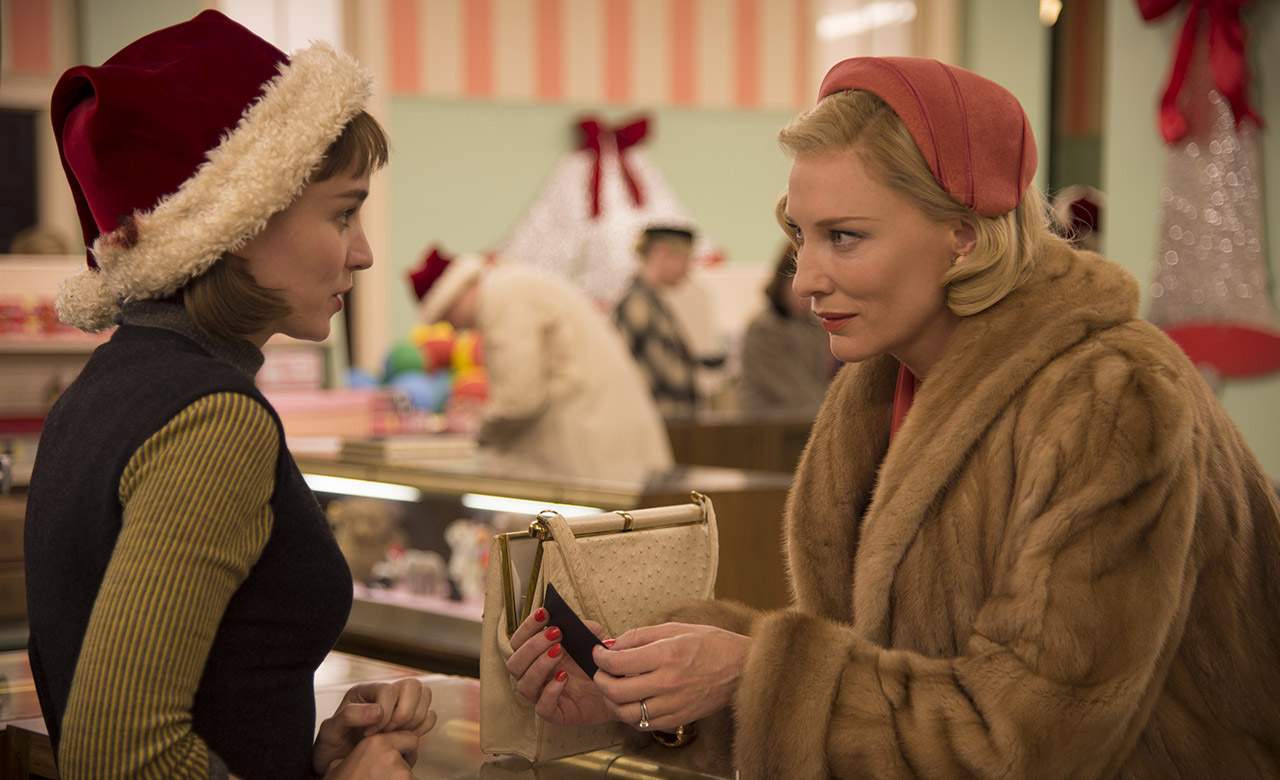Carol
Cate Blanchett and Rooney Mara are exquisite in this aching romantic drama.
Overview
Telling a slow-building tale of forbidden romance, Carol is a study in clashes, contrasts and control. Within its story and sumptuous sights, everything bristles against something else, is challenged by a counterpart, and has to find a way either to work within, or burst beyond, orderly confines. That's true of the character (Cate Blanchett) that gives the movie its name, and the shopgirl, Therese Belivet (Rooney Mara), who becomes infatuated with her. It's equally true of their attempts to connect in the conservative 1950s, and of the way the film brings their efforts to life.
Actually, in making his latest feature — following the likes of Velvet Goldmine and I'm Not There — director Todd Haynes hits the jackpot when it comes to matching his style to the story. An adaptation of Patricia Highsmith's 1952 novel The Price of Salt, Carol doesn't just recount a narrative considered groundbreaking at the time of publication, though writer Phyllis Nagy does a stellar job of translating the content for the screen. More than that, Haynes and company take every ounce of emotion within the book, then carefully infuse it into every aspect of the film, from its warm colour palette and fondness for lingering shots to its sweeping score and elegant performances.
Think of every moment, be it an image framed through a car window or a long look at gloves left behind, as an expression of the feelings the movie's characters can't always convey, or the words they can't always say. There's plenty left unspoken between Carol and Therese after they cross paths in a department store toy section just before Christmas. A friendship blossoms, and then something more, during dinners, visits and a road trip. Yet everything seems to conspire against them, thwarting them from embracing their love freely. Carol's pal Abby (Sarah Paulson) is cautious, her estranged husband Harge (Kyle Chandler) and Therese's boyfriend Richard (Jake Lacy) disapprove, and society is far from accepting.
The combination of restraint and passion that Haynes perfected in 2002's Far From Heaven bubbles up again here, with the filmmaker once more showing his prowess for probing sentiments forced to simmer below the surface. Watching the way he makes the material his own — continuing his fascination with complex stories of identity and repression, as well as his ability to ensure every frame seethes with beauty and meaning — it's almost impossible to believe that any other director could've done the material justice.
Haynes isn't the picture's only source of radiance, of course, with his technical team — particularly cinematographer Edward Lachman (Howl) and composer Carter Burwell (Fargo) — helping the exquisite-looking feature come together. And then there's Blanchett and Mara, both sharing the spotlight despite the film's title seeming to indicate otherwise. Believing their pain and desire is easy, and the pair more than earn the award nominations that keep coming their way. Sure, you've seen on-screen love stories before, but cinema romances this aching and consuming are all-too rare.





